168 start with F start with F
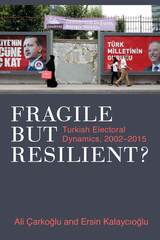
Ersin Kalaycıoğlu and Ali Çarkoğlu, who conducted surveys comparable to the American National Election Survey for the 2002 and 2015 national elections in Turkey, chart the dynamics that brought the pro-Islamist conservative Justice and Development Party (Adalet ve Kalkınma Partisi-AKP) to power in 2002, and that continue to influence electoral politics. The authors trace the uneven course of democratization in Turkey, as revealed through elections, since the first competitive, multi-party elections in 1950. Since the market liberalization reforms of 1980, Turkey has been rapidly evolving from a closed, agricultural, comparatively underdeveloped polity into an open and industrial state primarily integrated with the global economy. Kalaycıoğlu and Çarkoğlu analyze different dimensions of five elections surveys in 2002-2015 period to show how the consequent socio-economic changes and traditional socio-cultural divisions have affected elections, political parties, and individual voters. The authors conclude that the historical-cultural divide between rural, peripheral, conservative groups and more urban, centrist, and modernized groups not only persists but shapes elections more than ever. This book not only provides an original comprehensive and critical evaluation of the Turkish electoral and party politics, it also offers a case study of voting behavior in a state undergoing both democratization and market liberalization in a rapidly changing and volatile international environment.
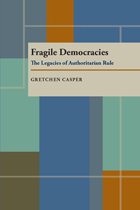
Examining the Marcos and Aquino administrations in the Philippines, and a number of cases in Latin Amarica, Casper discusses the legacies of authoritarianism and shows how difficult it is for popularly elected leaders to ensure that democracy will flourish. Authoritarian regimes leave an imprint on society long after their leaders have been overthrown because they transform or destroy the social institutions on which a successful democracy depends. Casper concludes that redemocratization is problematic, even in countries with strong democratic traditions.
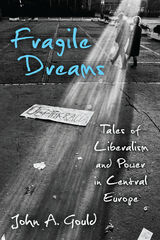
In Fragile Dreams, John A. Gould examines Central European communism, why it failed, and what has come since. Moving loosely chronologically from 1989 to the present, each chapter focuses on topics of importance to the fields of comparative politics, sociology, and feminist and gender studies. He draws heavily from his own research and experience as well as case studies of the former Czechoslovakia, Western Balkans, and Hungary—but much of the analysis has general applicability to the broader postcommunist region.
Broad in its coverage, this academically rigorous book is ideal for students, travelers, and general readers. Gould writes in the first person and seamlessly blends theory with stories both from the existing literature and from 30 years of regional personal experience with family and friends. Throughout, Gould introduces key concepts, players, and events with precise definitions. Wherever possible, he emphasizes marginalized narratives, centering theory and stories that are often overlooked in standard comparative political science literature.

Rhetorical remnants.
The Loeb Classical Library series Fragmentary Republican Latin continues with oratory, an important element of Roman life from the earliest times, essential to running public affairs and for advancing individual careers long before it acquired literary dimensions, which happened once orators decided to write up and circulate written versions of their speeches after delivery.
Beginning with Appius Claudius Caecus (340–273 BC), this three-volume edition covers the full range of speech-making—political, juridical, and epideictic (display)—and with the exceptions of Cato the Elder and Cicero includes all individuals for whom speech-making is attested and for whose speeches quotations, descriptive testimonia, or historiographic recreations survive.
Such an overview provides insight into the typical forms and themes of Roman oratory as well as its wide variety of occasions and styles. By including orators from different phases within the Republican period as well as men given high or low rankings by contemporaries and later ancient critics, the collection offers a fuller panorama of Roman Republican oratory than a selection guided simply by an orator’s alleged or canonical quality, or by the amount of evidence available.
This edition includes all the orators recognized by Malcovati and follows her numbering, but the texts have been drawn from the most recent and reliable editions of the source authors and revised in light of current scholarship; additional material has been included with its own separate numbering. Helping to guide readers through the material are faithful translations, informative introductions, and ample annotation.

Rhetorical remnants.
The Loeb Classical Library series Fragmentary Republican Latin continues with oratory, an important element of Roman life from the earliest times, essential to running public affairs and for advancing individual careers long before it acquired literary dimensions, which happened once orators decided to write up and circulate written versions of their speeches after delivery.
Beginning with Appius Claudius Caecus (340–273 BC), this three-volume edition covers the full range of speech-making—political, juridical, and epideictic (display)—and with the exceptions of Cato the Elder and Cicero includes all individuals for whom speech-making is attested and for whose speeches quotations, descriptive testimonia, or historiographic recreations survive.
Such an overview provides insight into the typical forms and themes of Roman oratory as well as its wide variety of occasions and styles. By including orators from different phases within the Republican period as well as men given high or low rankings by contemporaries and later ancient critics, the collection offers a fuller panorama of Roman Republican oratory than a selection guided simply by an orator’s alleged or canonical quality, or by the amount of evidence available.
This edition includes all the orators recognized by Malcovati and follows her numbering, but the texts have been drawn from the most recent and reliable editions of the source authors and revised in light of current scholarship; additional material has been included with its own separate numbering. Helping to guide readers through the material are faithful translations, informative introductions, and ample annotation.

Rhetorical remnants.
The Loeb Classical Library series Fragmentary Republican Latin continues with oratory, an important element of Roman life from the earliest times, essential to running public affairs and for advancing individual careers long before it acquired literary dimensions, which happened once orators decided to write up and circulate written versions of their speeches after delivery.
Beginning with Appius Claudius Caecus (340–273 BC), this three-volume edition covers the full range of speech-making—political, juridical, and epideictic (display)—and with the exceptions of Cato the Elder and Cicero includes all individuals for whom speech-making is attested and for whose speeches quotations, descriptive testimonia, or historiographic recreations survive.
Such an overview provides insight into the typical forms and themes of Roman oratory as well as its wide variety of occasions and styles. By including orators from different phases within the Republican period as well as men given high or low rankings by contemporaries and later ancient critics, the collection offers a fuller panorama of Roman Republican oratory than a selection guided simply by an orator’s alleged or canonical quality, or by the amount of evidence available.
This edition includes all the orators recognized by Malcovati and follows her numbering, but the texts have been drawn from the most recent and reliable editions of the source authors and revised in light of current scholarship; additional material has been included with its own separate numbering. Helping to guide readers through the material are faithful translations, informative introductions, and ample annotation.

Incomplete but invaluable excerpts from otherwise lost orations.
Cicero (Marcus Tullius, 106–43 BC), Roman advocate, orator, politician, poet, and philosopher, about whom we know more than we do of any other Roman, lived through the stirring era that saw the rise, dictatorship, and death of Julius Caesar in a tottering republic. In Cicero’s political speeches and in his correspondence, we see the excitement, tension, and intrigue of politics and the important part he played in the turmoil of the time.
Although Cicero’s oratory is well attested—of 106 known speeches, fifty-eight survive intact or in large part—the sixteen speeches that survive only in quotations nevertheless fill gaps in our knowledge. These speeches attracted the interest of later authors, particularly Asconius and Quintilian, for their exemplary content, oratorical strategies, or use of language, failing to survive entire not because they were inferior in quality or interest but due to factors contingent on the way Cicero’s speeches were read, circulated, and evaluated in (especially late) antiquity.
The fragmentary speeches fall, like Cicero’s career in general, into three periods: the preconsular, the consular, and the postconsular, and here are presented chronologically, numbered continuously, and their fragments arranged, insofar as possible, in the order in which they would have occurred, followed by unplaced quotations. Each speech receives an introduction and ample notation.
This edition, which completes the Loeb Classical Library edition of Cicero, includes all speeches with attested fragments, together with testimonia. Based upon Crawford’s edition of 1994, the sources have been examined afresh, and newer source-editions substituted where appropriate.

Chronicles of a Caesarean partisan.
Sallust, Gaius Sallustius Crispus (86–35 BC), a Sabine from Amiternum, acted as tribune against Cicero and Milo in 52, joined Caesar after being expelled from the Senate in 50, was restored to the Senate by Caesar and took part in his African campaign as praetor in 46, and was then appointed governor of New Africa (Numidia). Upon his return to Rome he narrowly escaped conviction for malfeasance in office, retired from public life, and took up historiography. Sallust’s last work, the annalistic Histories in five books, is much more expansive than his monographs on Catiline and Jugurtha (LCL 116), treating the whole of Roman history at home and abroad in the post-Sullan age. Although fragmentary, it provides invaluable information and insight about a crucial period of history spanning the period from 78 to around 67 BC.
Although Sallust is decidedly unsubtle and partisan in analyzing people and events, his works are important and significantly influenced later historians, notably Tacitus. Taking Thucydides as his model but building on Roman stylistic and rhetorical traditions, Sallust achieved a distinctive style, concentrated and arresting; lively characterizations, especially in the speeches; and skill at using particular episodes to illustrate large general themes.
For this volume, which completes the Loeb Classical Library edition of Sallust’s works, John T. Ramsey has freshly edited the Histories and the two pseudo-Sallustian Letters to Caesar, supplying ample annotation.
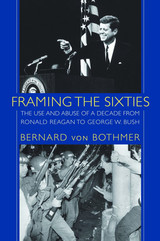
In Framing the Sixties, Bernard von Bothmer examines this battle over the collective memory of the decade primarily through the lens of presidential politics. He shows how four presidents—Ronald Reagan, George H. W. Bush, Bill Clinton, and George W. Bush—each sought to advance his political agenda by consciously shaping public understanding of the meaning of "the Sixties." He compares not only the way that each depicted the decade as a whole, but also their commentary on a set of specific topics: the presidency of John F. Kennedy, Lyndon Johnson's "Great Society" initiatives, the civil rights movement, and the Vietnam War.
In addition to analyzing the pronouncements of the presidents themselves, von Bothmer draws on interviews he conducted with more than one hundred and twenty cabinet members, speechwriters, advisers, strategists, historians, journalists, and activists from across the political spectrum—from Julian Bond, Daniel Ellsberg, Todd Gitlin, and Arthur Schlesinger to James Baker, Robert Bork, Phyllis Schlafly, and Paul Weyrich.
It is no secret that the upheavals of the 1960s opened fissures within American society that have continued to affect the nation's politics and to intensify its so-called culture wars. What this book documents is the extent to which political leaders, left and right, consciously exploited those divisions by "framing" the memory of that turbulent decade to serve their own partisan interests.


A panorama of a whole civilization, a world on the verge of cataclysm, unfolds in this magisterial work by the foremost historian of eighteenth-century France. Since Tocqueville’s account of the Old Regime, historians have struggled to understand the social, cultural, and political intricacies of this efflorescence of French society before the Revolution. France in the Enlightenment is a brilliant addition to this historical interest.
France in the Enlightenment brings the Old Regime to life by showing how its institutions operated and how they were understood by the people who worked within them. Daniel Roche begins with a map of space and time, depicting France as a mosaic of overlapping geographical units, with people and goods traversing it to the rhythms of everyday life. He fills this frame with the patterns of rural life, urban culture, and government institutions. Here as never before we see the eighteenth-century French “culture of appearances”: the organization of social life, the diffusion of ideas, the accoutrements of ordinary people in the folkways of ordinary living—their food and clothing, living quarters, reading material. Roche shows us the eighteenth-century France of the peasant, the merchant, the noble, the King, from Paris to the provinces, from the public space to the private home.
By placing politics and material culture at the heart of historical change, Roche captures the complexity and depth of the Enlightenment. From the finest detail to the widest view, from the isolated event to the sweeping trend, his masterly book offers an unparalleled picture of a society in motion, flush with the transformation that will be its own demise.
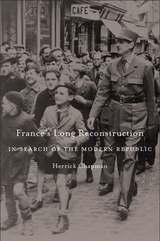
At the end of World War II, France’s greatest challenge was to repair a civil society torn asunder by Nazi occupation and total war. Recovery required the nation’s complete economic and social transformation. But just what form this “new France” should take remained the burning question at the heart of French political combat until the Algerian War ended, over a decade later. Herrick Chapman charts the course of France’s long reconstruction from 1944 to 1962, offering fresh insights into the ways the expansion of state power, intended to spearhead recovery, produced fierce controversies at home and unintended consequences abroad in France’s crumbling empire.
Abetted after Liberation by a new elite of technocratic experts, the burgeoning French state infiltrated areas of economic and social life traditionally free from government intervention. Politicians and intellectuals wrestled with how to reconcile state-directed modernization with the need to renew democratic participation and bolster civil society after years spent under the Nazi and Vichy yokes. But rather than resolving the tension, the conflict between top-down technocrats and grassroots democrats became institutionalized as a way of framing the problems facing Charles de Gaulle’s Fifth Republic.
Uniquely among European countries, France pursued domestic recovery while simultaneously fighting full-scale colonial wars. France’s Long Reconstruction shows how the Algerian War led to the further consolidation of state authority and cemented repressive immigration policies that now appear shortsighted and counterproductive.
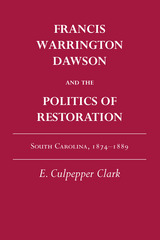
"This is a book that anyone interested in South Carolina history, the emergence of the New South, and the southern press, so important to the regional culture, will find valuable. Clark has researched all the important manuscript collections and a wide variety of other sources. He also writes in a style that is lucid and imaginative." —Journal of Southern History
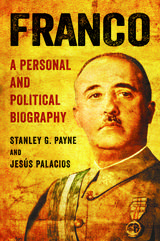
Franco: A Personal and Political Biography depicts his early life, explains his career and rise to prominence as an army officer who became Europe's youngest interwar brigadier general in 1926, and then discusses his role in the affairs of the troubled Second Spanish Republic (1931–36). Stanley G. Payne and Jesús Palacios examine in detail how Franco became dictator and how his leadership led to victory in the Spanish Civil War that consolidated his regime. They also explore Franco's role in the great repression that accompanied the Civil War—resulting in tens of thousands of executions—and examine at length his controversial role in World War II. This masterful biography highlights Franco's metamorphoses and adaptations to retain power as politics, culture, and economics shifted in the four decades of his dictatorship.
Best Books for General Audiences, selected by the American Association of School Librarians
Best Books for General Audiences, selected by the Public Library Reviewers
“An important book, destined to elicit a heated academic debate surrounding the man who ruled Spain for forty years and whose figure still casts a long shadow four decades after his death.”—Journal of Modern History
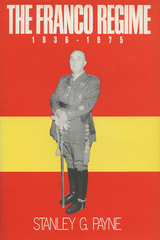
The history of modern Spain is dominated by the figure of Francisco Franco, who presided over one of the longest authoritarian regimes of the twentieth century. Between 1936 and the end of the regime in 1975, Franco’s Spain passed through several distinct phases of political, institutional, and economic development, moving from the original semi-fascist regime of 1936–45 to become the Catholic corporatist “organic democracy” under the monarchy from 1945 to 1957. Distinguished historian Stanley G. Payne offers deep insight into the career of this complex and formidable figure and the enormous changes that shaped Spanish history during his regime.

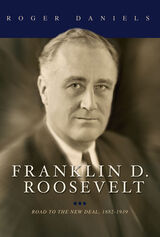
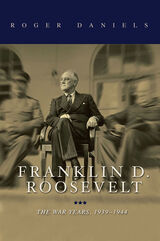
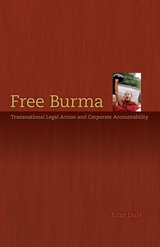
Through the experience of the Free Burma movement, John G. Dale demonstrates how social movements create and appropriate legal mechanisms for generating new transnational political opportunities. He presents three corporate accountability campaigns waged by the Free Burma movement. The cases focus on the legislation of “Free Burma” laws in local governments throughout the United States; the effort to force the state of California to de-charter Unocal Oil Corporation for its flagrant abuse of human rights; and the first-ever use of the U.S. Alien Tort Claims Act to sue a corporation in a U.S. court for human rights abuses committed abroad. Dale’s work also raises the issue of how foreign policies of so-called constructive engagement actually pose a threat to the hope of Burma’s activists—and others worldwide—for more democratic economic development.

By 1987, the Conservatives under Thatcher's leadership had won their third successive election victory over a divided opposition and enjoyed a degree of political and ideological dominance that led many commentators to speak of the end of the socialist era and the emergence of a new consensus in Britain. A new word—Thatcherism—had entered the political lexicon. It has come to signify a broad-ranging and distinctive program aimed at promoting economic recovery through the privatization of public enterprise and restoring the authority of the state. The Free Economy and the Strong State explores the roots of Thatcherism and its relationship to the Conservative tradition, to the economic liberal ideology of the New Right, and to the "new politics" which emerged from the recession and crisis of the world order in the mid 1970s.
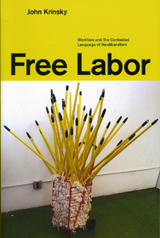
At times the fight over workfare unfolded as an argument over who had the authority to define these terms, and in Free Labor, John Krinsky focuses on changes in the language and organization of the political coalitions on either side of the debate. Krinsky’s broadly interdisciplinary analysis draws from interviews, official documents, and media reports to pursue new directions in the study of the cultural and cognitive aspects of political activism. Free Labor will instigate a lively dialogue among students of culture, labor and social movements, welfare policy, and urban political economy.
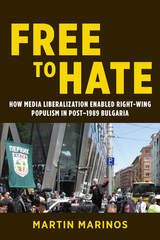
Bulgaria’s media-driven pivot to right-wing populism parallels political developments taking place around the world. Martin Marinos applies a critical political economy approach to place Bulgarian right-wing populism within the structural transformation of the country’s media institutions. As Marinos shows, media concentration under Western giants like Westdeutsche Allgemeine Zeitung and News Corporation have led to a neoliberal turn of commercialization, concentration, and tabloidization across media. The Right have used the anticommunism and racism bred by this environment to not only undermine traditional media but position their own outlets to boost new political entities like the nationalist party Ataka. Marinos’s ethnographic observations and interviews with local journalists, politicians, and media experts add on-the-ground detail to his account. He also examines several related issues, including the performative appeal of populist media and the money behind it.
A timely and innovative analysis, Free to Hate reveals where structural changes in media intersect with right-wing populism.


When a group of young political activists met in 1944 to launch the African National Congress Youth League, it included the nucleus of a remarkable generation of leaders who forged the struggle for freedom and equality in South Africa for the next half century: Nelson Mandela, Oliver Tambo, Walter Sisulu, Jordan Ngubane, Ellen Kuzwayo, Albertina Smith, A. P. Mda, Dan Tloome, and David Bopape. It was Anton Lembede, however whom they chose as their first president.
Lembede, who had just begun practicing law in Johannesburg, was known for his sharp intellect, fiery personality, and unwavering commitment to the struggle at hand. The son of farm laborers from the district of Georgedale, Natal, Lembede had worked tirelessly to put himself through school and college, and then to qualify for the bachelor of laws degree. When he began law practice in 1943, he had also earned the respect of his fellows, not only for his intellectual achievements (which were many), but also for his dedication to the cause of freedom in South Africa. “I am,” he explained, “Africa’s own child.”
His untimely death in 1947 at the age of 33 sent a wave of grief through the Congress Youth, who had looked to him for moral as well as political leadership. With the publication of Freedom In Our Lifetime, the editors acknowledge Lembede’s early contribution to the freedom movement, in particular his passionate and eloquent articulation of the African-centered philosophy he called “Africanism.”
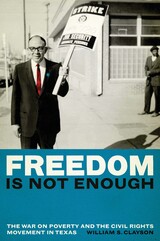
Led by the Office of Economic Opportunity, Lyndon Johnson's War on Poverty reflected the president's belief that, just as the civil rights movement and federal law tore down legalized segregation, progressive government and grassroots activism could eradicate poverty in the United States. Yet few have attempted to evaluate the relationship between the OEO and the freedom struggles of the 1960s. Focusing on the unique situation presented by Texas, Freedom Is Not Enough examines how the War on Poverty manifested itself in a state marked by racial division and diversity—and by endemic poverty.
Though the War on Poverty did not eradicate destitution in the United States, the history of the effort provides a unique window to examine the politics of race and social justice in the 1960s. William S. Clayson traces the rise and fall of postwar liberalism in the Lone Star State against a backdrop of dissent among Chicano militants and black nationalists who rejected Johnson's brand of liberalism. The conservative backlash that followed is another result of the dramatic political shifts revealed in the history of the OEO, completing this study of a unique facet in Texas's historical identity.
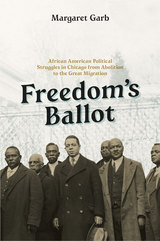
Freedom’s Ballot is the history of three generations of African American activists—the ministers, professionals, labor leaders, clubwomen, and entrepreneurs—who transformed twentieth-century urban politics. This is a complex and important story of how black political power was institutionalized in Chicago in the half-century following the Civil War. Margaret Garb explores the social and political fabric of Chicago, revealing how the physical makeup of the city was shaped by both political corruption and racial empowerment—in ways that can still be seen and felt today.
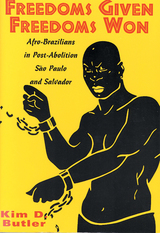
Freedoms Given, Freedoms Won explores the ways Afro-Brazilians in two major cities adapted to the new conditions of life after the abolition of slavery and how they confronted limitations placed on their new freedom. The book sets forth new ways of understanding why the abolition of slavery did not yield equitable fruits of citizenship, not only in Brazil, but throughout the Americas and the Caribbean.
Afro-Brazilians in Sao Paulo and Salvador lived out their new freedom in ways that raise issues common to the entire Afro-Atlantic diaspora. In Sao Paulo, they initiated a vocal struggle for inclusion in the creation of the nation's first black civil rights organization and political party, and they appropriated a discriminatory identity that isolated blacks. In contrast, African identity prevaled over black identity in Salvador, where social protest was oriented toward protecting the right of cultural pluralism.
Of all the eras and issues studied in Afro-Brazilian history, post-abolition social and political action has been the most neglected. Butler provides many details of this period for the first time in English and supplements published sources with original oral histories, Afro-Brazilian newspapers, and new state archival documents currently being catalogued in Bahia. Freedoms Given, Freedoms Won sets the Afro-Brazilian experience in a national context as well as situating it within the Afro-Atlantic diaspora through a series of explicit parallels, particularly with Cuba and Jamaica.


This book is the first comprehensive study tracing the origins and growth of English radicalism from the time of John Wilkes’s defiant fight for the rights of parliamentary electors to the final suppression of radical societies in 1799. It spans the age of revolution in England as the revolution absorbed reverberations from the American colonies and France, and was sometimes diverted by happenings in Scotland and Ireland.
“The Friends of Liberty” was the name English reformers took under George Ill's reign as they fought aristocratic rule and imperial domination within the English empire and abroad. They supported universal manhood suffrage, annual parliaments, social justice, the right of association, and they fought government suppression. At the height of their activity they were attacked as Jacobins, but the unfair denigration only hastened the beginnings of working class political consciousness and the formation of English conservatism.
Albert Goodwin contributes greatly to a profound understanding of the origins of popular radicalism in three ways. He reifies radicalism in urban areas beyond London—in the provincial cities of Manchester, Sheffield, Norwich, Birmingham, Derby, and Leicester. He places radicalism into a continental context. Finally, he traces radical thought from its seventeenth-century origins, through metropolitan Wilkite radicalism, Painite republicanism, and to Godwinian and Spencerian utopianism.

Among a growing number of ethnographies of eastern Indonesia that deal with cosmology, exchange, and kinship, From a Shattered Sun is the first to address squarely issues originally broached by Edmund Leach and Claude Lévi-Strauss concerning the relation between hierarchy and equality in asymmetric systems of marriage.
On the basis of extensive fieldwork in the Tamimbar islands, Susan McKinnon analyzes the simultaneous presence of both closed, asymmetric cycles and open, asymmetric pathways of alliance—of both egalitarian and hierarchical configurations. In addition, Tamimbarese society is marked by the existence of multiple, differentially valued forms of marriage, affiliation, and residence. Rather than seeing these various forms as analytically separable types, McKinnon demonstrates that it is only by viewing them as integrally related—in terms of culturally specific understandings of "houses," gender, and exchange—that one can perceive the processes through which hierarchy and equality are created.
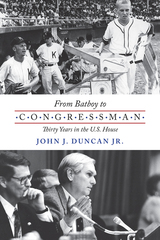
On October 10, 2002, Congressman John J. Duncan Jr. cast a vote in the U.S. House that he thought might end his political career. Going against his own party, he was one of only six House Republicans who voted against the Iraq War resolution. Constituents in his district were shocked, but over time Duncan felt his least popular vote became his most popular one—and probably the most significant in his thirty-year political career.
Congressman Duncan served as U.S. Representative for Tennessee’s Second Congressional district from 1988 to 2019. While he could have written a dense political memoir, in From Batboy to Congressman, Duncan employs a journalistic flair to provide just the right insight into a series of anecdotes from his storied life. Duncan’s family, early life, and time as a lawyer and judge all figure into the generous narrative, shared with both warmth and a self-deprecating sense of humor. He details unique experiences meeting celebrities, presidents, and sports stars; and, of course, he shares insights into the decisions that charted his Congressional career on issues such as Iraq, NAFTA, and concern for fiscal responsibility. Over his decades-long career, Duncan was known for his commitment to constituent service—even among constituents who disagreed with his views—so he offers a refreshing perspective on bipartisanship and connections across the aisle; indeed, he names conservatives, moderates, and liberals alike among his closest friends.
While this book contains timely reflections on issues of war and poverty, of leadership and the lack of it, of the proper relationship between citizens and government, its intention is to highlight moments in a singular career. “As you will read in this book,” writes Congressman Duncan, “every job gave me strange, funny, unusual stories.”
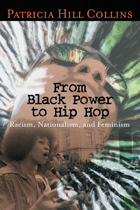

John C. Davis’s From Blue to Red: The Rise of the GOP in Arkansas provides a rigorous yet accessible study of this partisan shift, tracking changes in voter preference at the top of the ticket in the 1960s, generational replacement in Arkansas’ political power structure in the 1990s, and the emergence of a more nationalized and polarized electorate in the 2000s, among other developments. From Blue to Red is a fascinating look at how Arkansas went from being one of the country’s most solidly Democratic states to one of its most ardently Republican in just a few years.
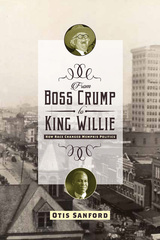
From Boss Crump to King Willie offers an in-depth look at the vital role that race played in the political evolution of Memphis, from the rise of longtime political boss Edward Hull Crump to the election of Dr. Willie Herenton as the city’s first black mayor. Filled with vivid details on the workings of municipal politics, this accessible account by veteran journalist Otis Sanford explores the nearly century-long struggle by African Americans in Memphis to secure recognition from local leaders and gain a viable voice in the city’s affairs.
Sanford explains how, in 1909, Crump won his first election as mayor without black support but then immediately sought to woo and keep the black vote in order to maintain his political machine for the next two generations. The African American community overwhelmingly supported the Crump organization because he at least listened and responded to some of
their concerns, while other white leaders completely ignored them. The book probes Crump’s hot-and-cold relationship with local newspaper editors, some of whom castigated his machine politics, and examines the press’s influence on the political and civic life of the city. It also shows how, amid longstanding racism and poverty in Memphis, the black community nevertheless produced many prominent business, religious, and political leaders, most of whom had an amicable relationship with “Boss” Crump.
The book goes on to explore the political vacuum that ensued after Crump’s death in 1954, and the factors that led to African Americans becoming the majority voting population in the city following Dr. Martin Luther King Jr.’s assassination in 1968. Through the civil rights movement and beyond, black Memphians kept up their fight for recognition and inclusion.
That fight culminated in the election of Dr. Herenton, a well-educated native son who proved to be the right man at the right time to make racial and political history in the city. Additionally, the book compares the racial climate in Memphis with that in other southern cities during the height of the civil rights movement.
OTIS SANFORD holds the Hardin Chair of Excellence in Economic/Managerial Journalism at the University of Memphis. He also serves as the political commentator for WREG-TV in Memphis. A former managing editor and current political columnist at the Memphis Commercial Appeal, he also worked for the Jackson (Miss.) Clarion-Ledger, the Pittsburgh Press, and the Detroit Free Press. He was inducted into the Tennessee Journalism Hall of Fame in 2014.

From Boss Crump to King Willie offers an in-depth look at the vital role that race played in the political evolution of Memphis, from the rise of longtime political boss Edward Hull Crump to the election of Dr. Willie Herenton as the city’s first black mayor. Filled with vivid details on the workings of municipal politics, this accessible account by veteran journalist Otis Sanford explores the nearly century-long struggle by African Americans in Memphis to secure recognition from local leaders and gain a viable voice in the city’s affairs.
Sanford explains how, in 1909, Crump won his first election as mayor without black support but then immediately sought to woo and keep the black vote in order to maintain his political machine for the next two generations. The African American community overwhelmingly supported the Crump organization because he at least listened and responded to some oftheir concerns, while other white leaders completely ignored them. The book probes Crump’s hot-and-cold relationship with local newspaper editors, some of whom castigated his machine politics, and examines the press’s influence on the political and civic life of the city. It also shows how, amid longstanding racism and poverty in Memphis, the black community nevertheless produced many prominent business, religious, and political leaders, most of whom had an amicable relationship with “Boss” Crump.
The book goes on to explore the political vacuum that ensued after Crump’s death in 1954, and the factors that led to African Americans becoming the majority voting population in the city following Dr. Martin Luther King Jr.’s assassination in 1968. Through the civil rights movement and beyond, black Memphians kept up their fight for recognition and inclusion. That fight culminated in the election of Dr. Herenton, a well-educated native son who proved to be the right man at the right time to make racial and political history in the city. Additionally, the book compares the racial climate in Memphis with that in other southern cities during
the height of the civil rights movement.
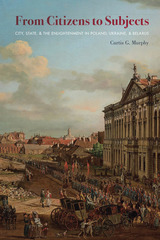
Murphy examines the government of the Polish-Lithuanian Commonwealth and the several imperial administrations that replaced it after the Partitions, comparing and contrasting their relationships with local citizenry, minority communities, and nobles who enjoyed considerable autonomy in their management of the cities of present-day Poland, Ukraine, and Belarus. He shows how the failure of Enlightenment-era reform was a direct result of the inherent defects in the reformers' visions, rather than from sabotage by shortsighted local residents. Reform in Poland-Lithuania effectively destroyed the existing system of complexities and imprecisions that had allowed certain towns to flourish, while also fostering a culture of self-government and civic republicanism among city citizens of all ranks and religions. By the mid-nineteenth century, the increasingly immobile post-Enlightenment state had transformed activist citizens into largely powerless subjects without conferring the promised material and economic benefits of centralization.
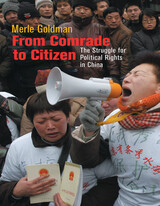
A leading scholar of China's modern political development examines the changing relationship between the Chinese people and the state. Correcting the conventional view of China as having instituted extraordinary economic changes but having experienced few political reforms in the post-Mao period, Merle Goldman details efforts by individuals and groups to assert their political rights.
China's move to the market and opening to the outside world have loosened party controls over everyday life and led to the emergence of ideological diversity. Starting in the 1980s, multi-candidate elections for local officials were held, and term limits were introduced for communist party leaders. Establishment intellectuals who have broken away from party patronage have openly criticized government policies. Those intellectuals outside the party structures, because of their participation in the Cultural Revolution or the 1989 Tiananmen Square demonstrations, have organized petitions, published independent critiques, formed independent groups, and even called for a new political system.
Despite the party's repeated attempts to suppress these efforts, awareness about political rights has been spreading among the general population. Goldman emphasizes that these changes do not guarantee movement toward democracy, but she sees them as significant and genuine advances in the assertion of political rights in China.
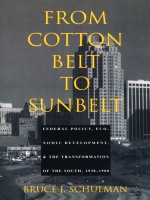
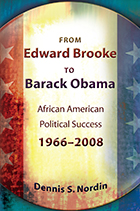
In From Edward Brooke to Barack Obama, Dennis S. Nordin navigates the history of biracial elections by examining the experiences of a variety of African American politicians from across the country, revealing how voters, both black and white, respond to the issue of race in an election.
From Edward Brooke to Barack Obama investigates the implications of race in politics, a highly relevant topic in today’s American society. It offers readers a chronological overview of the progress made over the last several decades as well as shows where there is room for growth in the political arena. By taking a pertinent topic for the era and placing it in the context of history, Nordin successfully chronicles the roles of race and race relations in American politics.
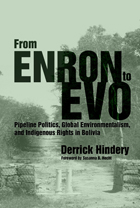
Drawing upon extensive interviews and document analysis, Hindery argues that many of the structural conditions created by neoliberal policies—including partial privatization of the oil and gas sector—still persist under Morales. Tactics employed by both Morales and his neoliberal predecessors utilize the rhetoric of environmental protection and Indigenous rights to justify oil, gas, mining, and road development in Indigenous territories and sensitive ecoregions.
Indigenous peoples, while mindful of gains made during Morales’s tenure, are increasingly dissatisfied with the administration’s development model, particularly when it infringes upon their right to self-determination. From Enron to Evo demonstrates their dynamic and pragmatic strategies to cope with development and adversity, while also advancing their own aims.
Offering a critique of both free-market piracy and the dilemmas of resource nationalism, this is a groundbreaking book for scholars, policy-makers, and advocates concerned with Indigenous politics, social movements, environmental justice, and resistance in an era of expanding resource development.

From his birth in the lowest stratum of the samurai class to his assassination at the hands of right-wing militarists, Takahashi Korekiyo (1854-1936) lived through tumultuous times that shaped the course of modern Japanese history. Takahashi is considered "Japan's Keynes" in many circles because of the forward-thinking (and controversial) fiscal and monetary policies--including deficit financing, currency devaluation, and lower interest rates--that he implemented to help Japan rebound from the Great Depression and move toward a modern economy.
Richard J. Smethurst's engaging biography underscores the profound influence of the seven-time finance minister on the political and economic development of Japan by casting new light on Takahashi's unusual background, unique talents, and singular experiences as a charismatic and cosmopolitan financial statesman.
Along with the many fascinating personal episodes--such as working as a houseboy in California and running a silver mine in the Andes--that molded Takahashi and his thinking, the book also highlights four major aspects of Takahashi's life: his unorthodox self-education, his two decades of service at the highest levels of government, his pathbreaking economic and political policies before and during the Depression, and his efforts to stem the rising tide of militarism in the 1930s. Deftly weaving together archival sources, personal correspondence, and historical analysis, Smethurst's study paints an intimate portrait of a key figure in the history of modern Japan.
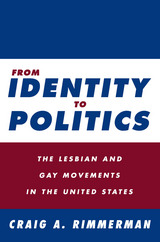
Enriched by eight years of interviews in Washington, D.C. and New York City, and by the author's experience as a Capitol Hill staffer, From Identity to Politics will provoke discussion in classrooms and caucus rooms across the United States.
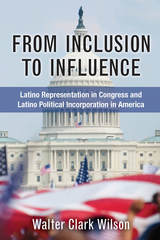
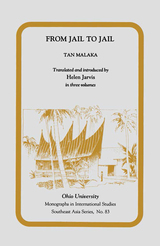
From Jail to Jail is the political autobiography of Sutan Ibrahim gelar Tan Malaka, an enigmatic and colorful political thinker of twentieth-century Asia, who was one of the most influential figures of the Indonesian Revolution. Variously labeled a communist, Trotskyite, and nationalist, Tan Malaka managed to run afoul of nearly every political group and faction involved in the Indonesian struggle for independence. During his decades of political activity, he spent periods of exile and hiding in nearly every country in Southeast Asia. As a Marxist who was expelled from and became a bitter enemy of his country’s Communist Party and as a nationalist who was imprisoned and murdered by his own government’s forces as a danger to its anticolonial struggle, Tan Malaka was and continues to be soaked in contradiction and controversy.
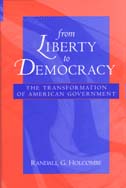
The government's activities during two world wars and the Great Depression greatly increased its involvement in people's economic affairs, and by the time of Lyndon Johnson's Great Society, the transformation was complete. By the end of the twentieth century, the fundamental principle underlying American government had been transformed to democracy, and public policy was designed to further the will of the majority. The result has been a government that is larger and broader in scope.
From Liberty to Democracy examines American political history using the framework of public choice theory to show how American government grew more democratic, and how this resulted in an increase in the size and scope of government. It should appeal to historians, political scientists, and economists who are interested in the evolution of American government but does not assume any specialized training and can be read by anyone interested in American political history.
Randall G. Holcombe is DeVoe Moore Professor of Economics, Florida State University

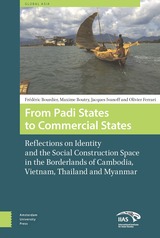
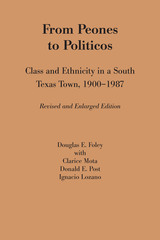
How does a relatively powerless ethnic group deal with the problems of economic inequality and racial discrimination? How do they gain power in the community? From Peones to Politicos examines these questions in detail, focusing on the changes in Mexicano-Anglo relations in one small South Texas community called North Town. These changes are typical of evolving Mexicano-Anglo relations in much of Texas and the Southwest.
The authors divide their study into three historical periods: the rancho era (1900–1930), the colonia era (1930–1970), and the contemporary period (1970–1977). They trace how Mexicano-Anglo relations have evolved away from the extremely exploitative, paternalistic sharecropper system of the rancho era, when open racism, strict social segregation, and effective Anglo political machines prevailed. They reveal, by contrast, how Mexicanos have become a power to be reckoned with by developing their own economic and political leaders and ethnic political organizations and challenging the Anglo control of the city, school, and county governments. The study also shows how Mexican American family practices have been changed by this transformation of the local political economy.
This revised edition of From Peones to Politicos presents updated fieldwork and additional discussion of class theory and the study of racial orders. Of special interest are reactions to the study by North Town residents themselves, which appear in the new Part IV.
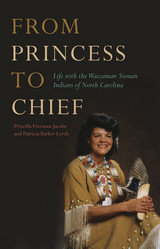
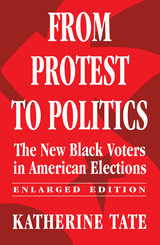
The struggle for civil rights among black Americans has moved into the voting booth. How such a shift came about—and what it means—is revealed in this timely reflection on black presidential politics in recent years.
Since 1984, largely as a result of Jesse Jackson’s presidential bid, blacks have been galvanized politically. Drawing on a substantial national survey of black voters, Katherine Tate shows how this process manifested itself at the polls in 1984, 1988, and 1992. In an analysis of the black presidential vote by region, income, age, and gender, she is able to identify unique aspects of the black experience as they shape political behavior, and to answer longstanding questions about that behavior.
Unique in its focus on the black electorate, this study illuminates a little-understood and tremendously significant aspect of American politics. It will benefit those who wish to understand better the subtle interplay of race and politics, at the voting booth and beyond.

In paperback for the first time, From Racism to Genocide is an explosive, richly detailed account of how Nazi anthropologists justified racism, developed practical applications of racist theory, and eventually participated in every phase of the Holocaust.
Using original sources and previously unpublished documentation, Gretchen E. Schafft shows the total range of anti-human activity from within the confines of a particular discipline. Based on seven years of archival research in the United States and abroad, the work includes many original photos and documents, most of which have never before been published. It uses primary data and original texts whenever possible, including correspondence written by perpetrators. The book also reveals that the United States was not merely a bystander in this research, but instead contributed professional and financial support to early racial research that continued through the first five years of Hitler’s regime.
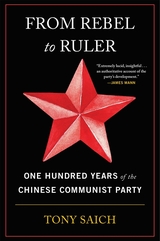
A Project Syndicate Best Read of the Year
On the centennial of the founding of the Chinese Communist Party, the definitive history of how Mao and his successors overcame incredible odds to gain and keep power.
Mao Zedong and the twelve other young men who founded the Chinese Communist Party in 1921 could hardly have imagined that less than thirty years later they would be rulers. On its hundredth anniversary, the party remains in command, leading a nation primed for global dominance.
Tony Saich tells the authoritative, comprehensive story of the Chinese Communist Party—its rise to power against incredible odds, its struggle to consolidate rule and overcome self-inflicted disasters, and its thriving amid other communist parties’ collapse. Saich argues that the brutal Japanese invasion in the 1930s actually helped the party. As the Communists retreated into the countryside, they established themselves as the populist, grassroots alternative to the Nationalists, gaining the support they would need to triumph in the civil war. Once in power, however, the Communists faced the difficult task of learning how to rule. Saich examines the devastating economic consequences of Mao’s Great Leap Forward and the political chaos of the Cultural Revolution, as well as the party’s rebound under Deng Xiaoping’s reforms.
Leninist systems are thought to be rigid, yet the Chinese Communist Party has proved adaptable. From Rebel to Ruler shows that the party owes its endurance to its flexibility. But is it nimble enough to realize Xi Jinping’s “China Dream”? Challenges are multiplying, as the growing middle class makes new demands on the state and the ideological retreat from communism draws the party further from its revolutionary roots. The legacy of the party may be secure, but its future is anything but guaranteed.
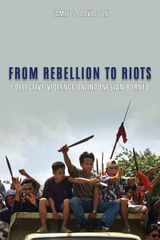
“A comprehensive case study . . . . Essential reading for students of the West Kalimantan violence.”—Dave McRae, Indonesia
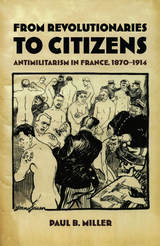
Although more general accounts of the Left’s “failure” to halt international war in August 1914 focus on its lack of unity or the decline of trade unionism, Miller contends that these explanations barely scratch the surface when it comes to interpreting the Left’s overwhelming acceptance of the war. By embedding his cultural analysis of antimilitarist propaganda into the larger political and diplomatic history of prewar Europe, he reveals the Left’s seemingly sudden transformation “from revolutionaries to citizens” as less a failure of resolve than a confession of commonality with the broader ideals of republican France. Examining sources ranging from police files and court records to German and British foreign office memos, Miller emphasizes the success of antimilitarism as a rallying cry against social and political inequities on behalf of ordinary citizens. Despite their keen awareness of the bloodletting that awaited Europe, he claims, antimilitarists ultimately accepted the war with Germany for the same reason they had pursued their own struggle within France: to address injustices and defend the rights of citizens in a democratic society.
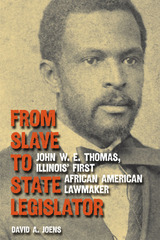
As the first African American elected to the Illinois General Assembly, John W. E. Thomas was the recognized leader of the state’s African American community for nearly twenty years and laid the groundwork for the success of future Black leaders in Chicago politics. Despite his key role in the passage of Illinois’ first civil rights act and his commitment to improving his community against steep personal and political barriers, Thomas’s life and career have been long forgotten by historians and the public alike. This fascinating full-length biography—the first to address the full influence of Thomas or any Black politician from Illinois during the Reconstruction Era—is also a pioneering effort to explain the dynamics of African American politics and divisions within the Black community in post–Civil War Chicago.
In From Slave to State Legislator, David A. Joens traces Thomas’s trajectory from a slave owned by a doctor’s family in Alabama to a prominent attorney believed to be the wealthiest African American man in Chicago at the time of his death in 1899. Providing one of the few comprehensive looks at African Americans in Chicago during this period, Joens reveals how Thomas’s career represents both the opportunities available to African Americans in the postwar period and the limits still placed on them. When Thomas moved to Chicago in 1869, he started a grocery store, invested in real estate, and founded the first private school for African Americans before becoming involved in politics.
From Slave to State Legislator provides detailed coverage of Thomas’s three terms in the legislature during the 1870s and 1880s, his multiple failures to be nominated for reelection, and his loyalty to the Republican Party at great political cost, calling attention to the political differences within a Black community often considered small and homogenous. Even after achieving his legislative legacy—the passage of the first state civil rights law—Thomas was plagued by patronage issues and an increasingly bitter split with the African American community frustrated with slow progress toward true equality. Drawing on newspapers and an array of government documents, Joens provides the most thorough review to date of the first civil rights legislation and the two controversial “colored conventions” chaired by Thomas.
Joens cements Thomas’s legacy as a committed and conscientious lawmaker amid political and personal struggles. In revealing the complicated rivalries and competing ambitions that shaped Black northern politics during the Reconstruction Era, Joens shows the long-term impact of Thomas’s friendship with other burgeoning African American political stars and his work to get more black representatives elected. The volume is enhanced by short biographies of other key Chicago African American politicians of the era.
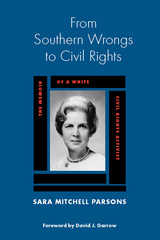
This first-hand account tells the story of turbulent civil rights era Atlanta through the eyes of a white upper-class woman who became an outspoken advocate for integration and racial equality
As a privileged white woman who grew up in segregated Atlanta, Sara Mitchell Parsons was an unlikely candidate to become a civil rights agitator. After all, her only contacts with blacks were with those who helped raise her and those who later helped raise her children. As a young woman, she followed the conventional path expected of her, becoming the dutiful wife of a conservative husband, going to the country club, and playing bridge. But unlike many of her peers, Parsons harbored an increasing uneasiness about racial segregation.In a memoir that includes candid diary excerpts, Parsons chronicles her moral awakening. With little support from her husband, she runs for the Atlanta Board of Education on a quietly integrationist platform and, once elected, becomes increasingly outspoken about inequitable school conditions and the slow pace of integration. Her activities bring her into contact with such civil rights leaders as Martin Luther King, Jr., and his wife, Coretta Scott King. For a time, she leads a dual existence, sometimes traveling the great psychic distance from an NAACP meeting on Auburn Avenue to an all-white party in upscale Buckhead. She eventually drops her ladies' clubs, and her deepening involvement in the civil rights movement costs Parsons many friends as well as her first marriage.
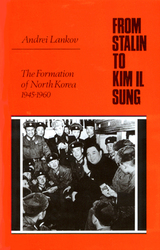
To understand how North Korea has survived as the worlds last Stalinist regime despite international isolationand at enormous human costs to its peopleone must look at how its political system was created. The countrys foundations were laid in the late 1940s and 1950s as a result of interaction between the Soviet Stalinist model, imposed from outside, and local traditions.
Andrei Lankov traces the formation of the North Korean state and the early years of Kim Il Sungs rule, when the future "Great Leader" and his entourage were consolidating their power base. Surveying the situation in North Korea after 1945, Lankov explores the internal composition of the ruling elite, the role of the Soviets, and the uneasy relations between various political groups. He also focuses on how in 1956 Kim Il Sung defeated the only known attempt to oust him and thereby established absolute personal rule beyond either Soviet or Chinese control.
The book is based on previously secret Soviet documents from Russian archives, as well as interviews with Russian and Korean participants.
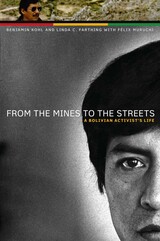
From the Mines to the Streets draws on the life of Félix Muruchi to depict the greater forces at play in Bolivia and elsewhere in South America during the last half of the twentieth century. It traces Félix from his birth in an indigenous family in 1946, just after the abolition of bonded labor, through the next sixty years of Bolivia's turbulent history. As a teenager, Félix followed his father into the tin mines before serving a compulsory year in the military, during which he witnessed the 1964 coup d'état that plunged the country into eighteen years of military rule. He returned to work in the mines, where he quickly rose to become a union leader. The reward for his activism was imprisonment, torture, and exile. After he came home, he participated actively in the struggles against neoliberal governments, which led in 2006—the year of his sixtieth birthday—to the inauguration of Evo Morales as Bolivia's first indigenous president.
The authors weave Muruchi's compelling recollections with contextual commentary that elucidates Bolivian history. The combination of an unforgettable life story and in-depth text boxes makes this a gripping, effective account, destined to become a classic sourcebook.
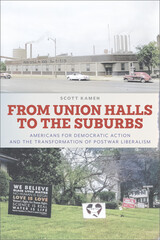
For decades, Americans for Democratic Action (ADA) exerted an outsized pull on the political stage. Formed in 1947 by anticommunist liberals such as economist John Kenneth Galbraith and historian Arthur Schlesinger Jr., the ADA established itself as the most prominent liberal organization in the United States for more than a quarter century. Shaped by the ADA, the New Politics movement upended Democratic Party politics with its challenge to the Vietnam War, demands for redistributive economic policies, and development of a far-reaching politics of race, gender, and sexuality.
By bringing the ADA and its influential public intellectuals into the story of the New Politics movement, Scott Kamen reveals how American liberalism shifted away from the working-class concerns of the New Deal era and began to cater to the interests of a new, suburban professional class. By the 1980s, many Democratic politicians, activists, and voters had embraced a neoliberal ideology that coupled socially liberal attitudes with market-based solutions, eschewing an older progressive politics steeped in labor issues.

Guichaoua draws on years of meticulous research to describe and analyze this history. He emphasizes that the same virulent controversies that fueled the conflict have often influenced judicial, political, and diplomatic responses to it, reproducing the partisan cleavages between the former belligerents and implicating state actors, international institutions, academics, and the media. Guichaoua insists upon the imperative of absolute intellectual independence in pursuing the truth about some of the gravest human rights violations of the twentieth century.

The Frontline presents a selection of essays drawn together for the first time to form a companion volume to Serhii Plokhy’s The Gates of Europe and Chernobyl. Here he expands upon his analysis in earlier works of key events in Ukrainian history, including Ukraine’s complex relations with Russia and the West, the burden of tragedies such as the Holodomor and World War II, the impact of the Chernobyl nuclear disaster, and Ukraine’s contribution to the collapse of the Soviet Union.
Juxtaposing Ukraine’s history to the contemporary politics of memory, this volume provides a multidimensional image of a country that continues to make headlines around the world. Eloquent in style and comprehensive in approach, the essays collected here reveal the roots of the ongoing political, cultural, and military conflict in Ukraine, the largest country in Europe.
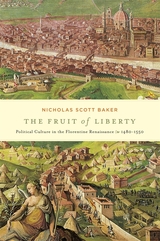
In the middle decades of the sixteenth century, the republican city-state of Florence--birthplace of the Renaissance--failed. In its place the Medici family created a principality, becoming first dukes of Florence and then grand dukes of Tuscany. The Fruit of Liberty examines how this transition occurred from the perspective of the Florentine patricians who had dominated and controlled the republic. The book analyzes the long, slow social and cultural transformations that predated, accompanied, and facilitated the institutional shift from republic to principality, from citizen to subject.
More than a chronological narrative, this analysis covers a wide range of contributing factors to this transition, from attitudes toward office holding, clothing, and the patronage of artists and architects to notions of self, family, and gender. Using a wide variety of sources including private letters, diaries, and art works, Nicholas Baker explores how the language, images, and values of the republic were reconceptualized to aid the shift from citizen to subject. He argues that the creation of Medici principality did not occur by a radical break with the past but with the adoption and adaptation of the political culture of Renaissance republicanism.


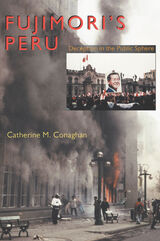
Alberto Fujimori ascended to the presidency of Peru in 1990, boldly promising to remake the country. Ten years later, he hastily sent his resignation from exile in Japan, leaving behind a trail of lies, deceit, and corruption. While piecing together the shards of Fujimori’s presidency, prosecutors uncovered a vast criminal conspiracy fueled by political ambition and personal greed.
The Fujimori regime managed to maintain a facade of democracy while systematically eviscerating democratic institutions and the rule of law through legal subterfuge, intimidation, and outright bribery. The architect of this strategy was Fujimori’s notorious intelligence advisor, Vladimiro Montesinos. With great skill, Fujimori and Montesinos created the appearance of a democratic public sphere but ensured it would work only to suit their personal motives. The press was allowed to operate, but information exchange was under strict control. The more government officials tampered with the free flow of ideas, the more they inadvertently exposed the ills they were trying to cover up. And that proved to be their downfall.
Merging penetrating analysis and a journalist’s flair for narrative, Catherine Conaghan reveals the thin line between democracy and dictatorship, and shows how public institutions can both empower dictators and bring them down.
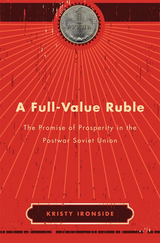
A new history shows that, despite Marxism’s rejection of money, the ruble was critical to the Soviet Union’s promise of shared prosperity for its citizens.
In spite of Karl Marx’s proclamation that money would become obsolete under Communism, the ruble remained a key feature of Soviet life. In fact, although Western economists typically concluded that money ultimately played a limited role in the Soviet Union, Kristy Ironside argues that money was both more important and more powerful than most histories have recognized. After the Second World War, money was resurrected as an essential tool of Soviet governance. Certainly, its importance was not lost on Soviet leaders, despite official Communist Party dogma. Money, Ironside demonstrates, mediated the relationship between the Soviet state and its citizens and was at the center of both the government’s and the people’s visions for the maturing Communist project. A strong ruble—one that held real value in workers’ hands and served as an effective labor incentive—was seen as essential to the economic growth that would rebuild society and realize Communism’s promised future of abundance.
Ironside shows how Soviet citizens turned to the state to remedy the damage that the ravages of the Second World War had inflicted upon their household economies. From the late 1940s through the early 1960s, progress toward Communism was increasingly measured by the health of its citizens’ personal finances, such as greater purchasing power, higher wages, better pensions, and growing savings. However, the increasing importance of money in Soviet life did not necessarily correlate to improved living standards for Soviet citizens. The Soviet government’s achievements in “raising the people’s material welfare” continued to lag behind the West’s advances during a period of unprecedented affluence. These factors combined to undermine popular support for Soviet power and confidence in the Communist project.
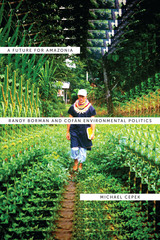
Blending ethnography with a fascinating personal story, A Future for Amazonia is an account of a political movement that arose in the early 1990s in response to decades of attacks on the lands and peoples of eastern Ecuador, one of the world’s most culturally and biologically diverse places. After generations of ruin at the hands of colonizing farmers, transnational oil companies, and Colombian armed factions, the indigenous Cofán people and their rain forest territory faced imminent jeopardy. In a surprising turn of events, the Cofán chose Randy Borman, a man of Euro-American descent, to lead their efforts to overcome the crisis that confronted them.
Drawing on three years of ethnographic research, A Future for Amazonia begins by tracing the contours of Cofán society and Borman’s place within it. Borman, a blue-eyed, white-skinned child of North American missionary-linguists, was raised in a Cofán community and gradually came to share the identity of his adoptive nation. He became a global media phenomenon and forged creative partnerships between Cofán communities, conservationist organizations, Western scientists, and the Ecuadorian state. The result was a collective mobilization that transformed the Cofán nation in unprecedented ways, providing them with political power, scientific expertise, and a new role as ambitious caretakers of more than one million acres of forest. Challenging simplistic notions of identity, indigeneity, and inevitable ecological destruction, A Future for Amazonia charts an inspiring course for environmental politics in the twenty-first century.

In this passionate and challenging book, a distinguished historian of Zionism argues that the world of Jewry is coming apart, that the old reality of Jewish nationhood lies shattered, that Israel is increasingly isolated, fated to go its separate way disengaged from Jewish communities in the Diaspora—most especially the Jewish community in the United States.
David Vital traces the roots of this disarray to the revolution—still unfinished—that began with the emancipation of the Jews in France after the Revolution, continued with the movement of Jews out of Europe and the decimation of European Jewry in the Holocaust, and culminated in the establishment of the state of Israel. For the first time in centuries the Jews have emerged as actors in history, with a nation-state of their own, but the political interests of Jews in Israel and of Jews in the Diaspora appear to be irreparably divided. The Jews are no longer a cohesive people, Vital claims; contemporary Jewry is profoundly fractured and dysfunctional, a fact that is nowhere more apparent than in the growing gap between the two largest Jewish communities in the world, the ones in Israel and in the United States.
This incisive book describes the waning of the Jewish nation, in an effort to lay the groundwork for a cool, clear, and more hardheaded view of the future of the Jews. Anyone with a serious interest in contemporary politics, and in the history and problematics of the Jews and Judaism, will find much to consider in this gripping book.
READERS
Browse our collection.
PUBLISHERS
See BiblioVault's publisher services.
STUDENT SERVICES
Files for college accessibility offices.
UChicago Accessibility Resources
home | accessibility | search | about | contact us
BiblioVault ® 2001 - 2024
The University of Chicago Press









